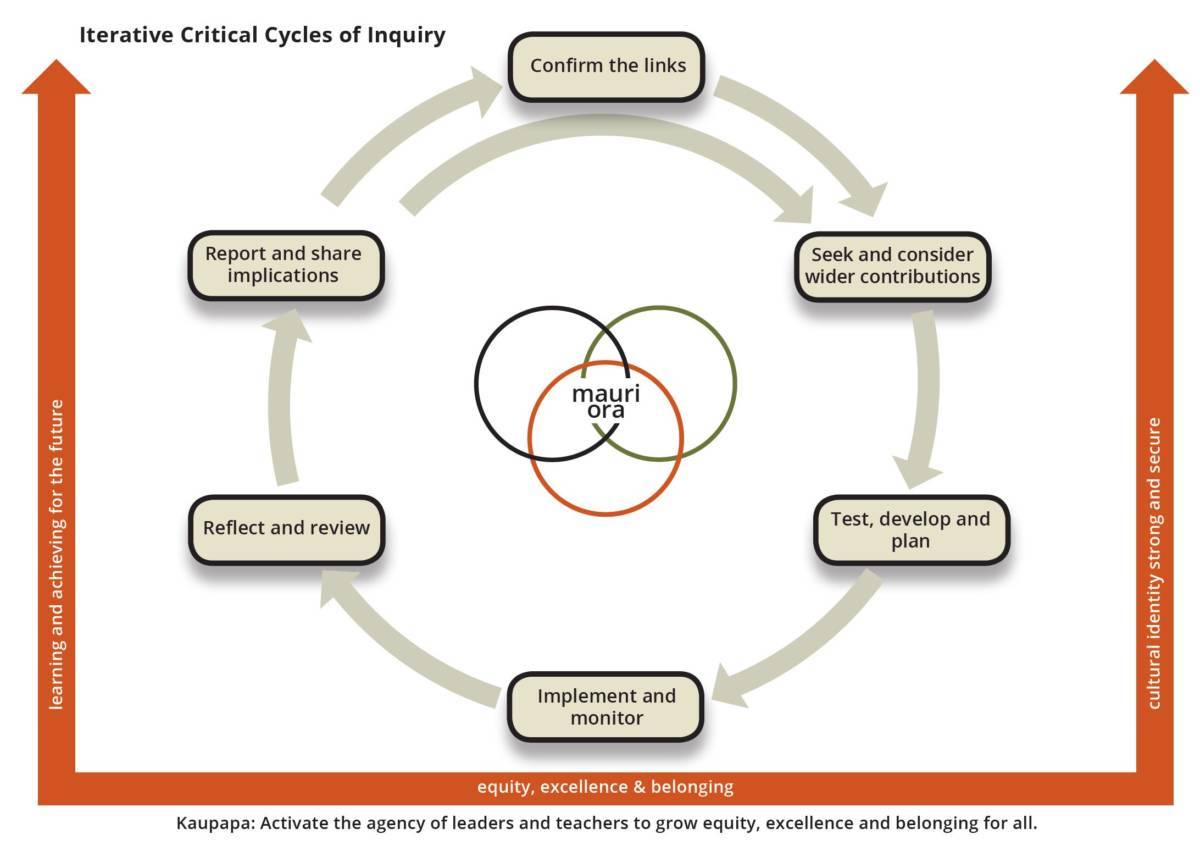Equity, excellence & belonging through inquiry
Posted on 15 March, 2018
Across Kāhui Ako and across schools the Poutama Pounamu critical and iterative cycle of inquiry is being understood and activated to address equity, excellence and belonging.
Leaders in both Kāhui Ako, and in schools, continue to wrestle with how they promote inquiry cycles at multiple layers across the school that will influence equitable outcomes for Māori and for all.
Some leaders are recognising that it is not enough for teachers to be “involved” in individual inquiries that “tick the box” if issues of equity are not being addressed.
First steps and questions
A first step these leaders are taking is to collect evidence that helps them understand what inquiry currently looks like and how and what evidence teachers are using.
Leaders have shared that teacher inquiries do not necessarily link coherently with the school vision and strategic plan. Middle leaders have reflected on whether the inquiries of teachers in their department or syndicate link to the department annual plan, goals and targets. They have also begun to consider whether evidence of pedagogy informs teacher inquiries and whether data for target students shows a picture of the current situation for Māori and for all.
This then leads to questions like: in what ways do we need to reconsider our inquiries?
A focus on critical, iterative and coherent cycles of inquiry can also prompt questions such as:What opportunities are there for other “layers” of inquiry - for example, how are middle leaders’ cycle of inquiry focussed on their role as leaders of pedagogy?
Senior leaders have begun to ask how are their own leadership inquiries focussed on equity?
Considering the potential
As teachers and leaders understand more about critical, iterative and coherent cycles of inquiry, and the potential it has to contribute towards an equitable education system that fulfills the promise of a Mana Orite partnership, new questions will emerge.
The simultaneous success trajectories of learning and achieving for the future and cultural identity strong and secure creates the space for schools to consider what evidence informs their inquiries and how they begin to understand what further opportunities a Mauri Ora perspective presents.
Submitted by Iti Joyce
